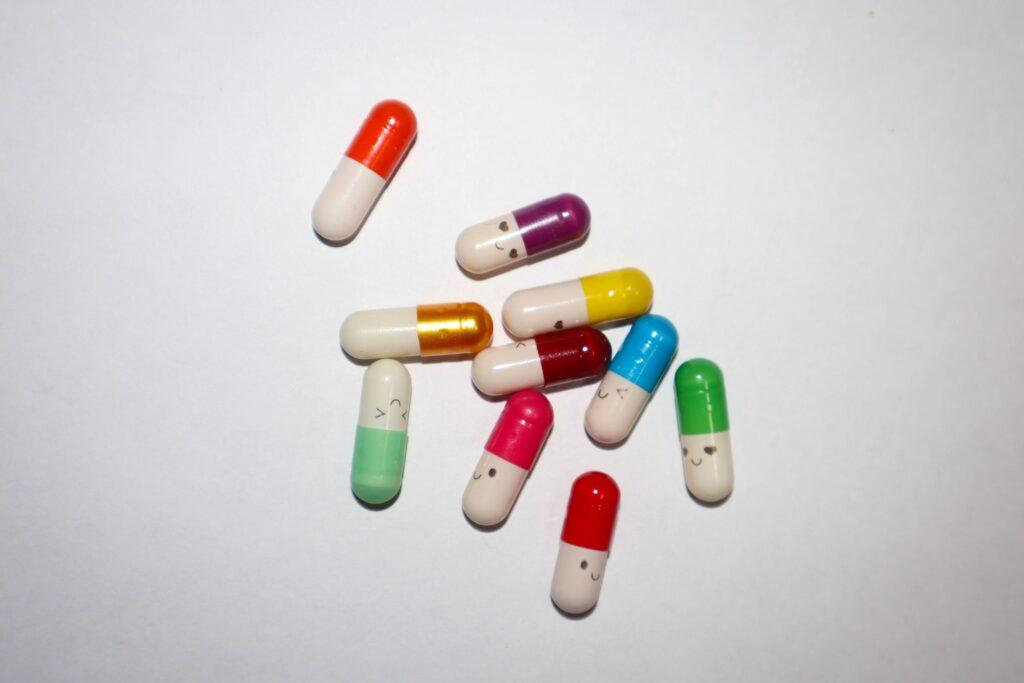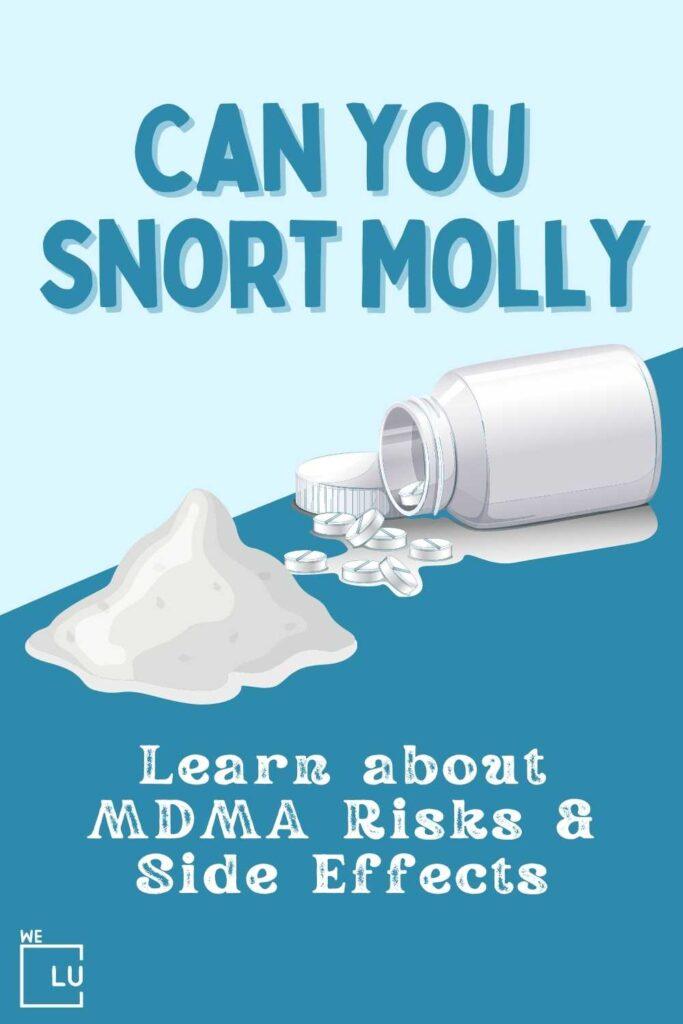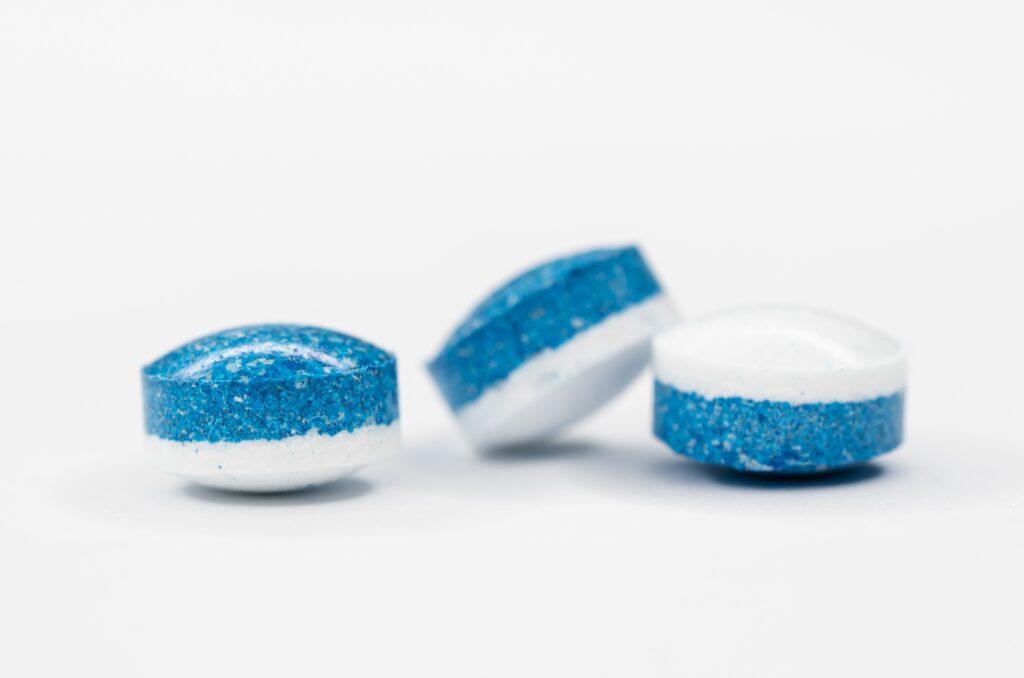How Long Does Molly Stay In Your System?
The duration for which Molly (MDMA) remains detectable in the human system varies depending on factors such as individual metabolism, frequency of use, dosage, and the type of drug test employed. Here’s a general overview of MDMA detection times for different types of drug tests:
| Drug Test Type | Detection Time |
|---|---|
| Urine Test | 2-4 days |
| Blood Test | 1-2 days |
| Saliva Test | 1-2 days |
| Hair Test | Up to 90 days or more |
- Urine Test: MDMA is typically detectable in urine for 2 to 4 days after use. However, it might be detectable for a slightly extended period in heavy users or cases of high dosage.
- Blood Test: MDMA’s presence in the bloodstream is relatively short-lived. It can usually be detected within 1 to 2 days after ingestion. Blood tests are often used when recent use needs to be confirmed.
- Saliva Test: Saliva tests can detect MDMA for about 1 to 2 days after use. They are less commonly used but can provide a shorter detection window than urine or blood tests.
- Hair Test: Hair tests have the most extended detection window, capable of detecting MDMA for up to 90 days or even longer after use. However, it’s important to note that MDMA incorporation into hair is a more complex process, and factors such as hair growth rate can impact the accuracy of this method.
Remember that these detection times are approximate averages and can vary based on individual factors. Additionally, prolonged or heavy use of MDMA can potentially lead to an accumulation of the drug’s metabolites in the body, which might extend the detection window.
Understanding these detection times can be valuable for various reasons, including employment drug testing, legal proceedings, and monitoring of individuals undergoing rehabilitation.
It’s worth noting that while knowledge of detection times is essential, the journey toward recovery from substance use involves comprehensive support, medical guidance, and the dedication of rehab centers to help individuals regain control of their lives.
Are Molly Drug Tests Accurate?
The accuracy of Molly (MDMA) drug tests can vary depending on the type of test used and the specific circumstances. Generally, drug tests for MDMA are designed to detect the presence of its metabolites or traces in bodily fluids or tissues. Here’s an overview of the accuracy of different types of Molly drug tests:
- Urine Tests: Urine tests are one of the most common methods for detecting MDMA use. They are generally accurate in identifying the presence of MDMA metabolites in urine within a specific detection window. However, false positives or negatives can occur due to cross-reactivity with other substances or variations in individual metabolism. Some over-the-counter medications or supplements might trigger false positives for amphetamines, which could lead to inaccurate results.
- Blood Tests: Blood tests are considered accurate in detecting recent MDMA use. They can provide a short detection window, usually within 1 to 2 days after ingestion. Blood tests are often used when immediate or recent drug use needs to be confirmed, such as in accidents or emergencies.
- Saliva Tests: Saliva tests are less commonly used for MDMA detection, but they can accurately detect recent drug use within a day or two after ingestion. Like urine tests, false positives or negatives might occur due to various factors.
- Hair Tests: Hair tests have the advantage of offering a longer window of detection, potentially up to 90 days or more. However, the accuracy of hair tests can be influenced by factors like hair color, texture, and treatments. False positives or negatives are possible in hair tests as well.

Skip To:
Learn More:
Get Help. Get Better. Get Your Life Back.
Searching for Accredited Drug and Alcohol Rehab Centers Near You?
Even if you have failed previously and relapsed, or are in the middle of a difficult crisis, we stand ready to support you. Our trusted behavioral health specialists will not give up on you. When you feel ready or just want someone to speak to about therapy alternatives to change your life call us. Even if we cannot assist you, we will lead you to wherever you can get support. There is no obligation. Call our hotline today.
(844) 597-1011How Long Does Molly Stay In Your System? Popular FAQs
-
What Is an MDMA Drug Test?
An MDMA drug test is a diagnostic method used to detect the presence of MDMA (3,4-methylenedioxymethamphetamine) or its metabolites in a person’s body. This test helps determine whether an individual has recently used MDMA, a recreational drug commonly known as ecstasy or Molly. Drug tests, such as urine, blood, saliva, and hair, identify MDMA compounds within specific detection windows. These tests are crucial in legal proceedings, employment screening, and medical evaluations, providing valuable information about an individual’s recent drug use.
-
Does Molly Show Up On Drug Test?
Yes, Molly (MDMA, 3,4-methylenedioxymethamphetamine) can appear on various drug tests, including urine, blood, saliva, and hair tests. The detection of MDMA depends on the specific test used and the timing of its consumption.
How Long Does Molly Stay In Your System? MDMA Factsheet
What is Molly?
Molly is a colloquial term for MDMA (3,4-methylenedioxymethamphetamine), a synthetic psychoactive substance known for its empathogenic and stimulant effects. It’s often used recreationally for its ability to enhance mood, increase feelings of emotional closeness, and heighten sensory experiences.
Molly Drug Tests
- Urine Tests: Commonly used for convenience and accessibility, urine tests can detect MDMA within 2 to 4 days of use. They are widely used for drug screening and are suitable for detecting recent use.
- Blood Tests: Offering a shorter detection window of 1 to 2 days, blood tests are valuable for confirming recent MDMA consumption. They are often employed in situations requiring immediate or recent use verification, such as accidents or emergencies.
- Saliva Tests: Similar to blood tests, saliva tests can detect MDMA within 1 to 2 days of use. Their non-invasive nature makes them advantageous, and is used in scenarios where recent use confirmation is needed.
- Hair Tests: Hair tests provide the most extended detection window, potentially identifying MDMA use for up to 90 days or more. These tests analyze hair strands for metabolites, making them suitable for assessing long-term drug history.
These diverse drug tests serve medical, legal, and workplace purposes, contributing to a comprehensive understanding of an individual’s MDMA consumption patterns and history.
Molly Addiction Signs
Signs of potential Molly (MDMA) addiction can manifest physically and behaviorally. While not everyone who uses MDMA will become addicted, it’s essential to be aware of these signs if you or someone you know is using the substance regularly:
- Craving and Obsession: Individuals addicted to Molly often crave the drug, and their thoughts may be consumed by obtaining and using it.
- Increased Tolerance: Over time, regular MDMA use can lead to the body requiring higher doses to achieve the desired effects, indicating the development of tolerance.
- Failed Attempts to Cut Down: Someone with a potential Molly addiction might struggle to reduce or control their use, even if they desire to.
- Withdrawal Symptoms: When not using Molly, individuals addicted to it might experience withdrawal symptoms such as mood swings, fatigue, depression, anxiety, and difficulty concentrating.
- Neglecting Responsibilities: Addiction can lead to neglecting responsibilities at work, school, or home due to preoccupation with obtaining and using the drug.
- Loss of Interest: People addicted to Molly may lose interest in activities they previously enjoyed as their focus shifts primarily to drug use.
- Continued Use Despite Consequences: Even when faced with negative consequences like health issues, strained relationships, or legal problems, those struggling with addiction might continue to use Molly.
- Isolation and Secrecy: Individuals addicted to Molly might withdraw from social activities and isolate themselves to hide their drug use.
MDMA Addiction Statistics
These statistics collectively emphasize MDMA use within different segments of the U.S. population and the potential consequences of its misuse or addiction.
1.1 million
Around 1.1 million people aged 12 and older in the United States reported using MDMA (Ecstasy or Molly) in 2018.
Source: NSDUH
4.4%
About 4.4% of college students in the U.S. reported using MDMA in 2019.
Source: Monitoring the Future Survey
22,949
There were approximately 22,949 emergency department visits related to MDMA use in 2011.
Source: DAWN

Get Your Life Back
Find Hope & Recovery. Get Safe Comfortable Detox, Addiction Rehab & Dual Diagnosis High-Quality Care.
Hotline(844) 597-1011
What is an MDMA Test Kit?
An MDMA test kit is used to analyze and identify the presence of MDMA (ecstasy or Molly) or other substances in a sample. These kits are primarily designed for harm reduction purposes and to provide users with a way to verify the contents of a substance before consumption.
MDMA test kits utilize chemical reactions that produce color changes when they come into contact specific substances.
Here’s how an MDMA test kit typically works:
- Reagents: MDMA test kits consist of chemical reagents, solutions designed to react with specific compounds found in MDMA or other substances. Each reagent is formulated to produce a unique color change or reaction when it comes into contact with a particular substance.
- Color Reactions: When a small sample of a substance is mixed with a drop of the reagent, the resulting color change can provide information about the presence of MDMA or other substances. Different colors or reaction patterns indicate the presence of different compounds.
- Interpretation: The user compares the observed color change or reaction to a color chart provided with the test kit. This chart helps them identify whether the substance contains MDMA, a related compound, or something entirely different.
MDMA test kits are commonly used at events, parties, festivals, and other social settings where recreational drug use might occur. Their primary goal is to reduce the risk of accidental consumption of adulterated or dangerous substances. Illicit drugs like MDMA are often mixed with other substances, which can lead to unexpected and potentially harmful effects. Using an MDMA test kit, users can gain confidence in the substance composition they intend to consume.
It’s important to note that while MDMA test kits can provide valuable information, they are not foolproof. They can only detect the presence of specific compounds and not identify all possible adulterants or impurities. Additionally, using these kits does not guarantee the safety of the tested substance. Professional laboratory testing is recommended for the most accurate and comprehensive information about a substance.
First-class Facilities & Amenities
World-class High-Quality Addiction & Mental Health Rehabilitation Treatment
Rehab Centers TourRenowned Addiction Centers. Serene Private Facilities. Inpatient rehab programs vary.
Addiction Helpline(844) 597-1011Proven recovery success experience, backed by a Team w/ History of:
15+
Years of Unified Experience
100s
5-Star Reviews Across Our Centers
10K
Recovery Success Stories Across Our Network
- Low Patient to Therapist Ratio
- Onsite Medical Detox Center
- Comprehensive Dual-Diagnosis Treatment
- Complimentary Family & Alumni Programs
- Coaching, Recovery & Personal Development Events
How Long Does Molly Stay In Your System? Molly Addiction Treatment
At We Level Up Treatment Center, we understand the unique challenges and complexities of Molly addiction. Our comprehensive and compassionate approach to Molly Addiction Treatment is designed to guide individuals toward lasting recovery. Our services are tailored to address addiction’s physical, psychological, and emotional aspects. Here’s what we offer:
- Medical Detoxification: Our expert medical team provides supervised detox to safely manage withdrawal symptoms and ensure a comfortable transition toward sobriety.
- Personalized Assessment: We conduct thorough assessments to understand each individual’s specific needs, mental health status, and any co-occurring disorders, allowing us to tailor treatment plans accordingly.
- Evidence-Based Therapies: Our center offers evidence-based therapies such as Cognitive Behavioral Therapy (CBT), Dialectical Behavioral Therapy (DBT), and Motivational Interviewing to help individuals address addictive behaviors and develop healthier coping mechanisms.
- Individual Counseling: One-on-one sessions with our experienced therapists provide a private space to explore personal challenges, triggers, and underlying issues contributing to addiction.

- Group Therapy: Group sessions provide a supportive environment to share experiences, gain insights, and build connections with peers on a similar journey to recovery.
- Dual Diagnosis Treatment: We specialize in treating co-occurring disorders alongside addiction, ensuring comprehensive care for mental health and substance use concerns.
- Holistic Approaches: Our holistic therapies include mindfulness, yoga, art therapy, and fitness programs to promote well-being and reduce stress.
- Medication-Assisted Treatment (MAT): In some instances, MAT may be integrated into treatment to manage cravings and withdrawal symptoms, supervised by our medical team.
- Family Involvement: Family therapy and education sessions involve loved ones in the healing process, fostering understanding, communication, and support.
- Aftercare Planning: Our treatment plans include a detailed aftercare strategy to help individuals maintain their progress post-treatment, with ongoing counseling, relapse prevention strategies, and support group recommendations.
- Experienced Staff: Our team of licensed professionals, including therapists, counselors, medical doctors, and addiction specialists, are committed to providing individualized care and support throughout the journey to recovery.
We Level Up Treatment Center believes in empowering individuals to overcome Molly addiction, rebuild their lives, and embrace a healthier future. Our services encompass a holistic, client-centered approach that fosters healing, growth, and sustainable recovery.
World-class, Accredited, 5-Star Reviewed, Effective Addiction & Mental Health Programs. Complete Behavioral Health Inpatient Rehab, Detox plus Co-occuring Disorders Therapy.
CALL(844) 597-1011End the Addiction Pain. End the Emotional Rollercoaster. Get Your Life Back. Start Drug, Alcohol & Dual Diagnosis Mental Health Treatment Now. Get Free No-obligation Guidance by Substance Abuse Specialists Who Understand Addiction & Mental Health Recovery & Know How to Help.
How Long Does Molly Stay In Your System? We Level Up Molly Addiction Treatment Near Me
We Level Up Treatment Center is committed to providing comprehensive and compassionate MDMA rehab treatment to guide individuals towards lasting recovery. Our tailored programs address the unique challenges posed by MDMA use, offering a range of specialized services to support each individual’s journey toward healing.
Our experienced medical professionals, therapists, and counselors create a nurturing environment where clients can engage in evidence-based therapies, individual and group counseling sessions, and holistic approaches to address the physical, emotional, and psychological aspects of MDMA addiction. Through personalized treatment plans, we foster self-discovery, helping clients build coping mechanisms, relapse prevention strategies, and skills to navigate triggers associated with MDMA use.
We understand that sustainable recovery requires a holistic approach, and our services encompass everything from detoxification and medical supervision to psychoeducation, family therapy, and aftercare planning. At We Level Up, we are dedicated to guiding individuals step by step, empowering them to reclaim their lives from the grip of MDMA addiction and rediscover a future filled with hope and fulfillment.
Experience Transformative Recovery at We Level Up Treatment Centers.
See our authentic success stories. Get inspired. Get the help you deserve.
Start a New Life
Begin with a free call to an addiction & behavioral health treatment advisor. Learn more about our dual-diagnosis programs. The We Level Up Treatment Center Network delivers recovery programs that vary by each treatment facility. Call to learn more.
- Personalized Care
- Caring Accountable Staff
- World-class Amenities
- Licensed & Accredited
- Renowned w/ 100s 5-Star Reviews
We’ll Call You
How Long Does Molly Stay In Your System? Watch The Drug Addiction Informative Video
Video Script
Joey’s Opiates, Drugs, and Alcohol Addiction Recovery Story
Joey’s story is a sad reminder of the harsh reality of addiction. He faced significant challenges in his recovery journey after losing his son, but his progress toward sobriety has been inspiring. The crucial first step for Joey was seeking help for his addiction, and he deserves all the necessary support to aid his recovery process.
Search We Level Up How Long Does Molly Stay In Your System? Resources
Sources
- National Institute on Drug Abuse (NIDA) – MDMA (Ecstasy/Molly): https://www.drugabuse.gov/drug-topics/mdma-ecstasymolly
- Substance Abuse and Mental Health Services Administration (SAMHSA) – MDMA (Ecstasy/Molly) Information: https://www.samhsa.gov/find-help/atod
- Drug Enforcement Administration (DEA) – MDMA: https://www.dea.gov/
- National Institute on Drug Abuse (NIDA) – DrugFacts: MDMA (Ecstasy/Molly): https://www.drugabuse.gov/publications/drugfacts/mdma-ecstasymolly
- Centers for Disease Control and Prevention (CDC) – MDMA (Ecstasy/Molly) Use and Its Effects: https://www.cdc.gov/nchs/nvss/vsrr/drug-overdose-data.htm
- National Institute on Drug Abuse (NIDA) – Commonly Abused Drug Charts: https://www.drugabuse.gov/drug-topics/commonly-abused-drugs-charts
- National Institute on Drug Abuse (NIDA) – Principles of Drug Addiction Treatment: A Research-Based Guide: https://www.drugabuse.gov/publications/principles-drug-addiction-treatment-research-based-guide-third-edition
- Substance Abuse and Mental Health Services Administration (SAMHSA) – Behavioral Health Treatment Services Locator: https://findtreatment.samhsa.gov/
- Drug Enforcement Administration (DEA) – Drug Fact Sheet: MDMA (Ecstasy): https://www.dea.gov/
- Centers for Disease Control and Prevention (CDC) – National Vital Statistics System – Drug Overdose Data: https://www.cdc.gov/nchs/nvss/vsrr/drug-overdose-data.htm


